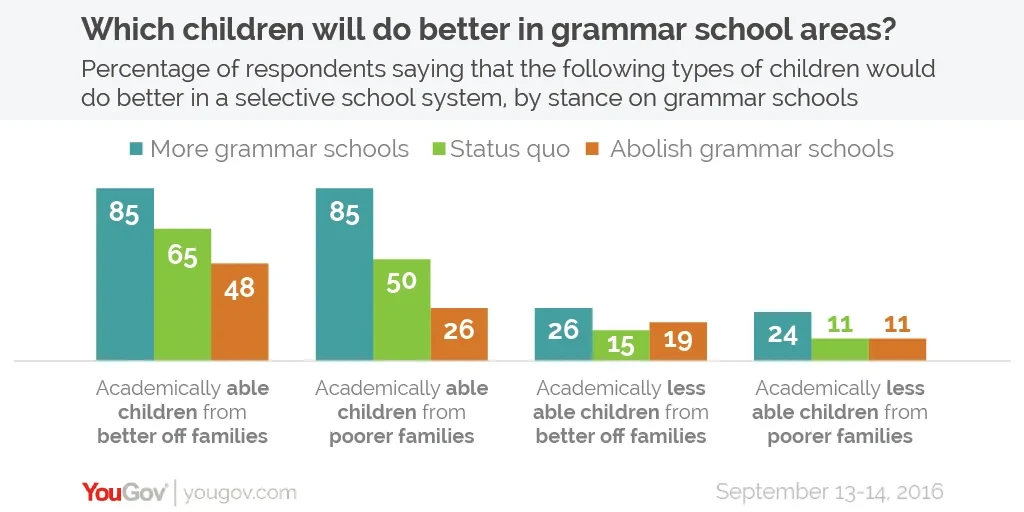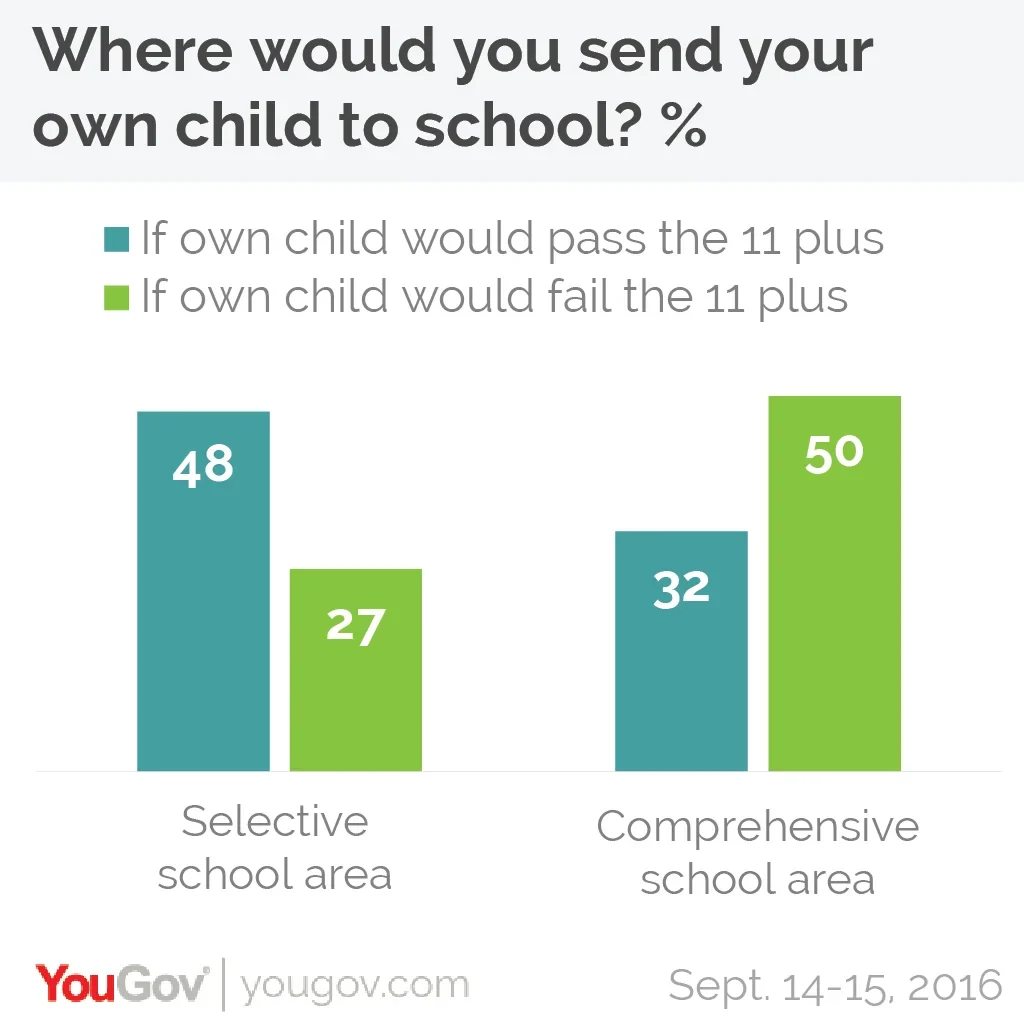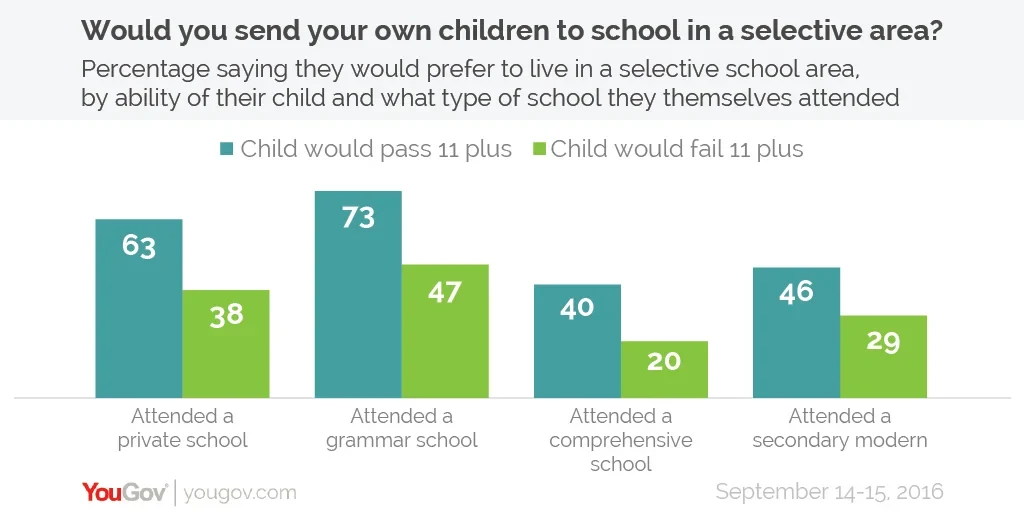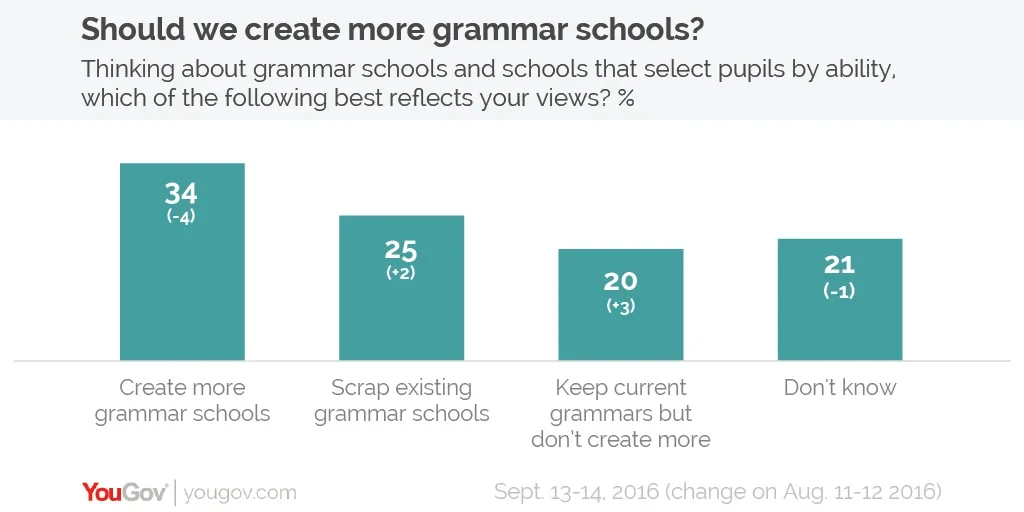Most people who want more grammar schools admit that less academically able children would be better off in a comprehensive system
With the schools debate dominating the government’s political agenda, new research from YouGov finds that grammar schools are seen by the majority of people to be good in one way – that is, at giving a high standard of education to academically able children.
The flip side of this is that the majority of English people also think that selective school systems are bad for academically less able children. Selective school systems are also seen as much more beneficial to children from better-off families than to those from poorer families.
Six in ten (61%) think that smart children would do better in a selective system than in a comprehensive system, and although the number falls by 10 points, a majority thinks the same is true for academically able children from poorer families.
Likewise, a solid majority of 59% think a comprehensive education would be better for less able children from poorer families, dropping slightly to 55% for less able children from rich families.
Even amongst those who want to see the creation of more grammar schools, there is acknowledgement that selective school systems are bad for less able children. Whilst 85% of those who want more grammar schools say they are good for able children, this drops to 26-24% for less able children. Around six in ten who want more grammar schools think that less able children would be better off in comprehensive areas.

This begs the question - do people back grammar schools because they think their own child is smart enough to get into one? The answer seems to be yes.

Asked to imagine that they had a child who could pass the 11 plus exam, 48% of people said that they would prefer to live in an area with a selective system, whilst 32% said they would choose a comprehensive area. These figures flip when asked to imagine their child would fail the 11 plus exam, with 50% saying they'd prefer to live in a comprehensive area and 27% saying a selective area.
The research also finds that people’s attitudes to what type of school system they would prefer their children to be in is highly influenced by what type of school they attended themselves.
Among those who attended grammar schools themselves, as well as the privately educated, the proportion of people who would want to live in a selective system shoots up to 73% and 63% respectively if their child could pass the 11 plus. A selective area would also be the favoured option for those who attended secondary moderns themselves at 46%. Those who attended comprehensives are split 40%/40% between selective and comprehensive areas.

When asked subsequently to imagine they had a child who would fail the 11 plus, however, those who attended grammar schools themselves would still prefer to live in a selective area, albeit narrowly at 47% vs 42%. This potentially indicates a “they can’t all be that bad” mindset regarding secondary moderns.
Those who went to secondary moderns themselves would seem to prefer to prevent their own child from doing the same though. Nearly half (47%) would rather live in a comprehensive area vs 29% a selective area. Comprehensively educated people are the most likely to prefer to send a less gifted child to a comprehensive school at 59% vs 20%.

Finally, just over a third of people (34%) say that the government should encourage more schools to select by academic ability and build more grammar schools – slightly lower than a month previously when the debate was just getting started. One in five want to keep the status quo – allowing current grammar schools to stay open but no more to be added – whilst 25% of people want to convert all grammar schools into comprehensives.
Photo: PA








